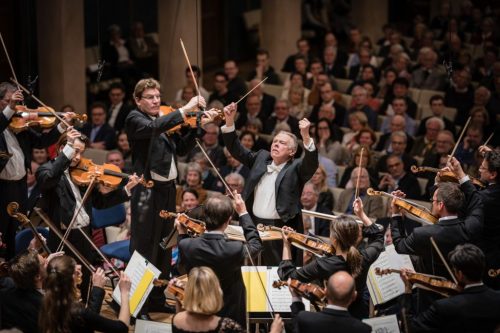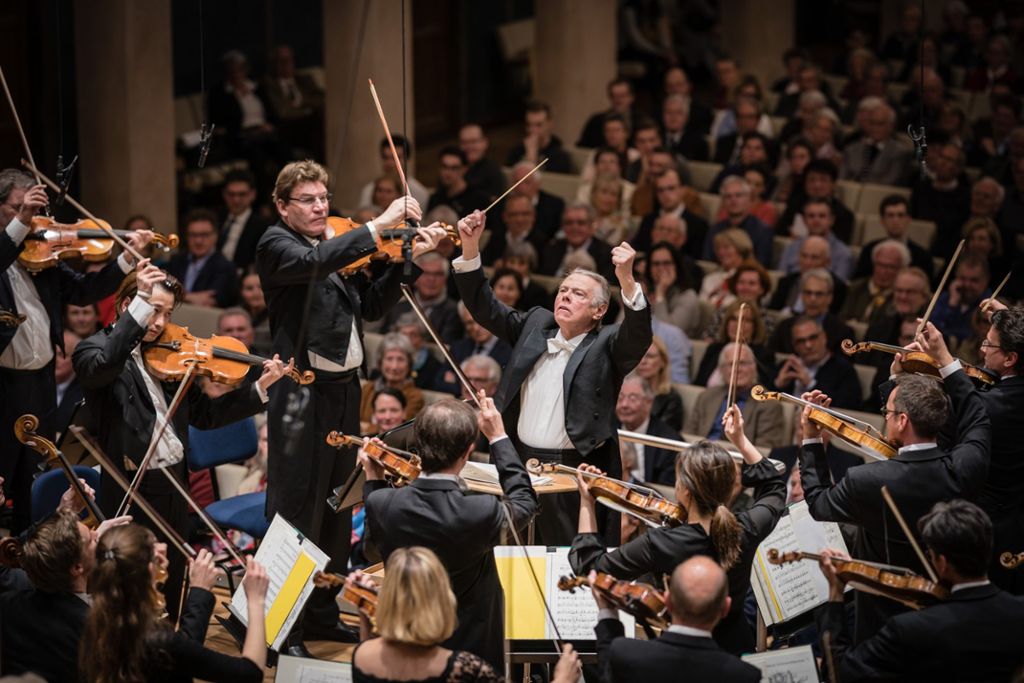 Germany R. Strauss, Brahms: Sarah Wegener (soprano), Symphonieorchester des Bayerischen Rundfunks / Mariss Jansons (conductor). Herkulessaal, Munich, 10.10.2019. (MC)
Germany R. Strauss, Brahms: Sarah Wegener (soprano), Symphonieorchester des Bayerischen Rundfunks / Mariss Jansons (conductor). Herkulessaal, Munich, 10.10.2019. (MC)

R. Strauss – Four Symphonic Interludes from Intermezzo; Orchestral Lieder: ‘Das Rosenband’; ‘Ständchen’; ‘Freundliche Vision’; ‘Wiegenlied’; ‘Allerseelen’; ‘Morgen!’
Brahms – Symphony No.4
In 2017 when I saw the Symphonieorchester des Bayerischen Rundfunks (Bavarian Radio Symphony Orchestra) in concert at Herkulessaal (review click here) it was Herbert Blomstedt on the podium. Now it was pleasing to see the orchestra’s popular chief conductor Mariss Jansons back at the helm after a taking a regenerative break on doctors’ orders.
The city of Munich has a well-established and fruitful tradition of hosting performances of music from Richard Strauss, one of its favourite sons. Strauss himself described his two-act opera Intermezzo premiered in 1924 as a ‘bourgeois comedy with symphonic interludes’. However, outside Germany and Austria, the opera has never found much favour. Nevertheless, the Four Symphonic Interludes taken from between scenes of the opera are occasionally encountered in the concert hall. I have got to know these works thanks to a 1963 recording from the Staatskapelle Dresden under Otmar Suitner and I am glad to have had the opportunity of hearing them in live performance. Although only founded in 1949 the performing tradition of the Symphonieorchester des Bayerischen Rundfunks is steeped in the music of Strauss and under Jansons the unique Straussian lyricism shines through in abundance with a fresh and lively performance full of warmth.
Having been looking forward for some months to seeing Diana Damrau singing Richard Strauss orchestral Lieder I admit to being rather disappointed at her unfortunate withdrawal through illness. Nevertheless, Sarah Wegener proved to be a most able replacement and I certainly didn’t go away feeling short changed. Quickly into her stride, Wegener took to the task extremely well, singing the selection of six songs with assured control and plenty of dramatic commitment. Not quite having the colour range and sense of engagement that Damrau has in her armoury, Wegener consistently displayed her moderately bright and attractive tone to splendid effect, with a glorious mid-range and was able to slide effortlessly to her high register. Although enjoying every one of the songs, not surprisingly, it was the best known ‘Ständchen’, ‘Wiegenlied’, and in particular ‘Morgen!’ with its lovely part for solo violin, that stood out. It is not uncommon to encounter sopranos drowned out by overloud orchestral playing but the experienced Jansons was careful to provide just the right level of volume. Wegener certainly delighted the Herkulessaal audience who cheered long and hard.
But the best was yet to come as after the interval Jansons conducted a stunning performance of Brahms’s Fourth Symphony. Its esteem has endured strongly and remains for many Brahms’s most popular symphony. Biographer Walter Niemann found an intense degree of sadness in the fourth movement and wanted to describe the score as Brahms’s ‘Elegiac’ symphony. It wasn’t long before the Bavarian players showed their absolute affinity for the music, seemingly relishing every second. What I found especially rewarding was Jansons’s intelligent regard for the shape and scale of the score. Jansons gave a hard-driven performance that was both thrilling and affecting at turns, revealing plenty of often obscured detail. Wide dynamics didn’t come as a sacrifice for unity which remained impeccable throughout. Although relishing the whole performance, my highlights were the second movement Andante moderato delving deep into the heart of the score with glorious playing that really held the attention. Positioned at the side of this rectangular hall and looking across I am sure I could see tears in the eyes of several members of the audience. A weighty sense of foreboding and mystery opened the celebrated final movement, a symphonic passacaglia. With the orchestra under Jansons in such commendable form the performance produced a high level of tension together with an overall sense of grandeur that resulted in a captivating performance. I have certainly not heard Brahms’s Fourth played better. Hopefully, I will have the opportunity of seeing and hearing the performance again as almost all the orchestra’s performances are recorded, and I noticed that television cameras were filming too.
Michael Cookson
